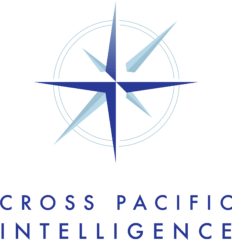現場で起きていることを冷静に眺めて見ると、M&Aを成功させるための常識(とされているもの)からは逆説的な、異なった光景が見えてきます
Examining what happens in the real world during M&A, a PARADOXICAL situation comes into view
Cross Pacific Intelligence社は、「戦略とは、自分たちに有利な状況を作り出す一連の企てと実践的な働きのこと」と捉えています。そこには相手(交渉相手・顧客・競合・取引先・従業員など)がおり、こちらの行動に対して反応します。この作用-反作用と組織意思決定レイヤーとが交錯して、情勢を複雑にします
Cross Pacific Intelligenceが見る現実
M&Aを成功させるための常識?

ハード要素 vs.ソフト要素
Hard Factors vs. Soft Factors
いくら精緻に定量分析による企業価値評価をしても、その実力は掴め切れない (ソフト要素のインテリジェンスが必要)
-
- 買収監査で捉えることが可能なのは、「能力」の一部のみ
- バリュエーションは定量化であり、数値化できるものしか扱えない
- 企業の重要な価値(例えば「知識」)は目に見えず、定量化もできない
- 企業が成果をあげるには「能力」と「意図」を機能させなければならないが、これらの多くはソフト要素である
Regardless of refined valuation/financial model, the all-out value is not captured without full intelligence of soft factors.
-
-
Due diligence enables us to uncover full capabilities.
-
Valuation goes beyond measuring quantifiable hard factors
-
Most value is intangible and often qualitative, such as knowledge.
-
Unlocking the value, require making capabilities and intentions workable by soft factors.
-
バリュエーション(企業価値評価)を精緻に行えば、価値を正しく捉えることができる
Precisely execute a valuation and financial model

消耗戦 vs. 機動戦
Attrition Warfare vs. Maneuver Warfare
(Agile)
どんなに厳格なPMI計画であっても、必ず、想定していなかった問題が起き、対応に手間取る (知的機動力での応戦に切り替える)
-
- 数ヶ月の買収監査で得た知識は、まだ不完全なもの
- 買収後に環境・情勢は変化するが、それは事前に予測できない(買収に伴う「反応」が必ず起きる)
- OODAループのテンポを早めることで、情勢に対する主導権を持つべき
- 信頼できる専門家ネットワークを活用して、即時に対処しなければならない
Regardless of thoroughness of the PMI plan, unpredicted problems will require intelligent and swift remedies.
-
-
Inadequate due diligence leads to limited and incomplete information
-
Changes to the environment post-acquisition can-not be forecasted, often resulting in incorrect reaction.
-
Moving the OODA* loop faster provides control of your situation
-
Leverage the power of a trusted expert network and complete the deal swiftly.
-
PDCAサイクルの一環として、周到な分析によって完璧なPMI計画を立てるべきである
Use PDCA and analytical methods to make a PMI plan perfect
![]()
コスト・センター vs. プロフィットセンタ
Cost Center vs. Profit Center
(Integration)
PMI活動は本質的に内部志向を強化し、重要なことから目を外らせてしまう (マーケティングとイノベーションに意識シフトする)
-
- PMI準備より契約交渉を優先させ、しばしば後手に回る(ピーク時期が同じなら「緊急度」で行動が決まる)
- 企業の内部にあるのは「コスト」と「問題」であり、「機会」と「価値」は外にある
- 2つの会社の統合ではなく、明日の新しい会社を今日作ることが重要
PMI activities inherently distract people from the important issues
-
-
Contract negotiation can overwhelm PMI preparation (Urgency to close overshadows the importance of PMI preparation).
-
Need to pay attention to both internal issues (such as cost) as well as external (such as opportunity and value).
-
Envision a single new company, rather than an integration of two existing businesses.
-
PMI活動は厳格にモニタリングし、手綱を緩めてはならない
Keeping the hard-and-fast PMI plan on track through monitoring

日本 vs. 欧米
Japan Centric vs. Western View
(Local)
日本のユニークさを分かってもらおうと近づくと、相手は遠ざかる(相手を深く知り、相手の「言語」と「思考方法」で会話する)
-
- 実用主義のビジネスに合わせ、「パフォーマンス文化」を共に追求する
- 日本人がどう思われているか、強み・弱みを知り、グローバルなビジネス・マナー、現地をもっと深く知る
- 相手の文脈・文化でメッセージを読み解き、適切なコミュニケーションを図る(相手から期待する「反応」を引き出す)
Attempts to explain the the uniqueness of Japan might be off-putting to Westerners; you need to understand their language, culture, and thinking style.
-
-
Building a performance centric culture together instead of tug-of-war.
-
Know what Japanese is thought including strengths and weaknesses , respect and behave in a global business manner.
-
Communicate properly by reading messages in the appropriate local context.
-
日本企業はユニークなので、ちゃんと理解してもらうことが重要である
